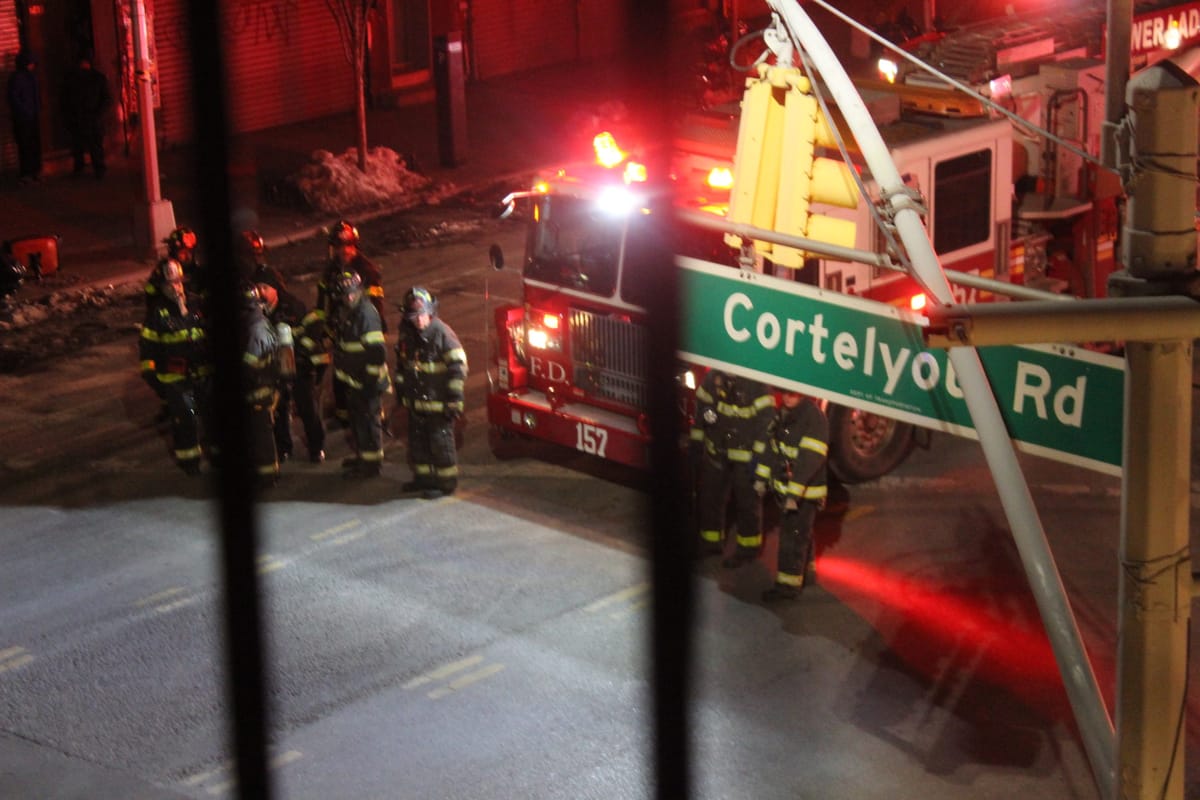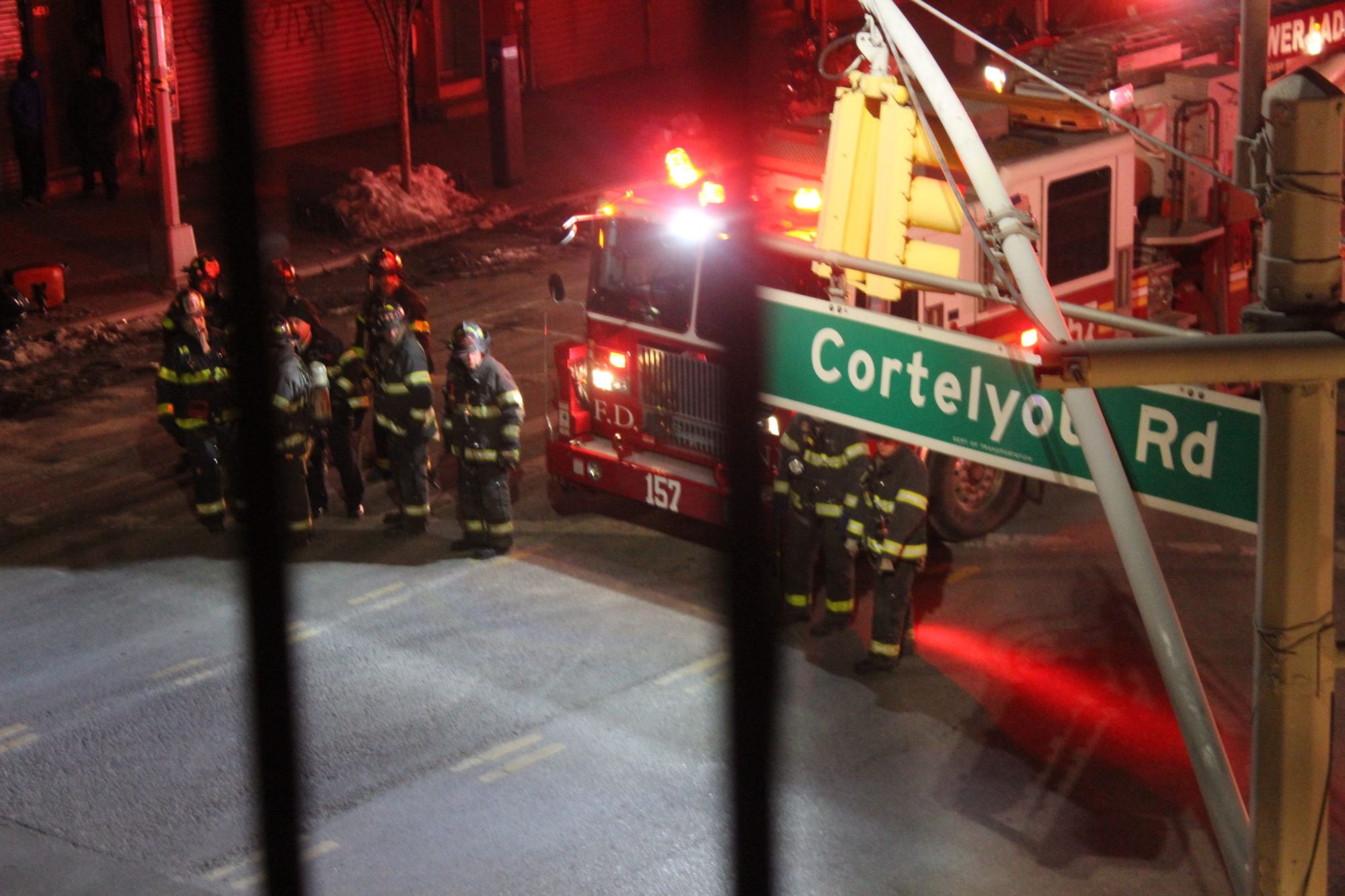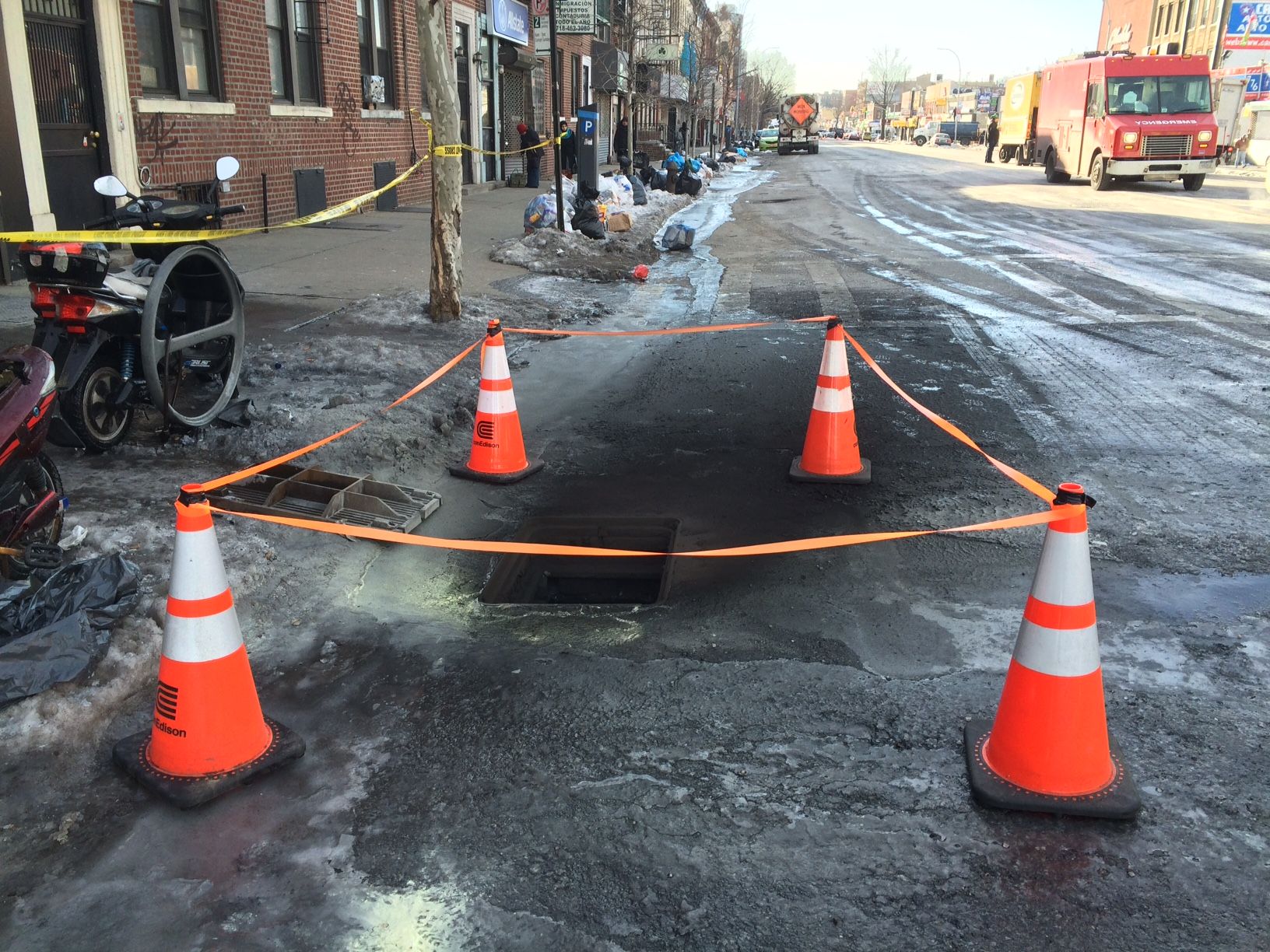What’s With All The Manhole Explosions? Con Edison Explains


Following manhole fires in our neighborhood, Park Slope, Sheepshead Bay, as well as throughout the city, you might be asking yourself, “What the hell is going on!?” A common occurrence in the winter and summer months, manhole explosions are clearly no joke, so we reached out to electric utility provider Con Edison to help explain a bit about what causes these incidents, what neighbors can look out for, and what they’re doing to help keep these things from happening.
The most common culprit in underground electrical fires is a combination of melting snow and road salt combining to corrode underground equipment, which can lead to smoke, fire, and occasionally enough pressure to send a manhole cover into the air.
“About 99 percent of these manhole fires are related to weather — Mother Nature,” says Sidney Alvarez, a Con Ed spokesman. “So in a nutshell, it snows — it snows heavily in this region — the city uses salt to treat the roads. When the salt and snow begins to melt, it gets into our electrical system. The salt works as a conduit so it’s a bad combination with our system. So that’s what causes the smoking manholes, and in some cases the explosions you might see.
“And you’re going to see more of these situations around February and early March,” he continues. “Then you have the big rainfalls that come and they tend to wash the salt away again until it begins again in the winter.”
Alvarez explains that while those underground Con Ed cables are protected, vibrations from things like large trucks traveling overhead or the subways rolling below can cause cables to rub against each other, over time developing cracks and leaving them open to these issues with the salt and snow.
“We have very aggressive cable replacement and inspection,” he says, noting they’re in the fourth year of their storm hardening program, which aims to curb these incidents so fire or other malfunctions don’t cause the power to go out. “It’s worked so far — we had some storms last winter and toward the end of 2014, and if we had not done the storm hardening we probably would have seen more outages.”

The primary aim of the program, however, is to reduce outages – not prevent fires. Of course, we’re glad to hear they’re working on keeping our power on, especially on a frigid day like today, but more neighbors are probably a bit freaked out that we might be hit by one of those exploding manhole covers. But Alvarez reminds us that’s pretty unlikely, noting that most Con Ed manholes have vents.
“So if it’s got pressure, the steam or pressure is able to escape,” he says. “And it takes a lot of pressure to move these manholes, which weigh 70 to 300 pounds.”
Alvarez says the man who was sent to the hospital after the explosion on Prospect Park West on Monday may not have been hit by a manhole cover, explaining that the spot affected was a vault — a larger, square cover — and not a manhole.
“We’re not sure [what hit the man who was injured],” he says. “It was some sort of debris flying through the air. If you’re going to get hit by a manhole, you’ll know you were hit by a manhole.”
He says the incident is still being investigated.
While most of these fires occur in the winter because of the salt that’s used to treat the roads — Alvarez says “it’s a very careful balancing act” for the city to keep transportation rolling while trying not to damage utilities, but as for using something other than salt, he says that’s a question for the city — we also sometimes see them in the summer, which is due to different elements, but has the same corrosive end result.
“The streets are basically baking the wires,” he says, “and you may still have salt. And in the spring, it’s the rain washing out the salt, so you’ll see problems there too.”
Like much in this city, there is something amazing about how this sort of thing doesn’t happen more often, and Alvarez assures us they’ve got the safety of both their employees and the general public as the top priority.
“We operate the most complex underground energy system in North America,” Alvarez says. “No other city competes. When you’re dealing with the most complex underground system, you’re going to see some issues. This time of year, it’s very much expected because of the salt used. But when one goes out, the equipment is there to protect the rest of the system and ensure service.”
If you see a smoking manhole or hear any crackling, call 911 and Con Edison at 1-800-75-CONED immediately.
“I know they whip out the phone and take video. If they can first call 911 or us and then take video, that would be better,” he says. “The sooner they call us, the sooner we can get out there and make it safe.”
With additional reporting by Ned Berke.




